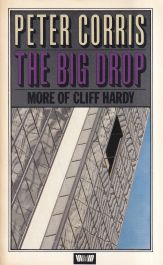Gabrielle Lord’s novels – Fortress, Tooth and Claw and now, Jumbo, are all topical, readable, and (I expect) highly marketable. Lord is a scriptwriter as well as a novelist and each of these books seems like a transit point between a great idea and the kind of film which makes you lean forward in your seat and temporarily abandon regular breathing. There is, however, much to be said for them, as novels. They are thrillers, but they are not merely escapist. The plots dislocate everyday events in a way which questions the validity of what passes as socially acceptable. On the other hand, pace, suspense, and social critique seem to substitute for the subtlety and detail which would transform these books into something more than temporarily exciting and even instructive reading experiences. For all the immediacy and significance of Lord’s novels, the vibrancy of her work often seems to me to lie in its potential, rather than in the text at hand. In this respect Jumbo, the most recent novel, does not surpass its predecessors.
...
(read more)









